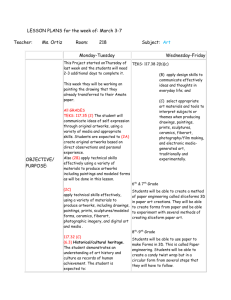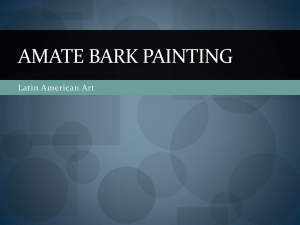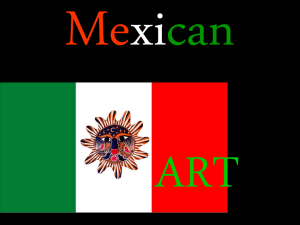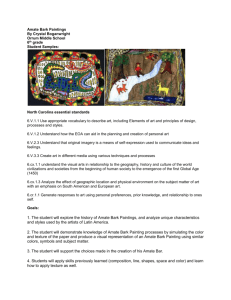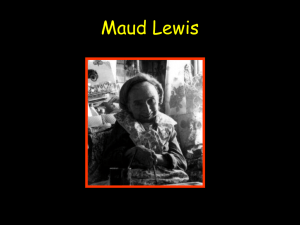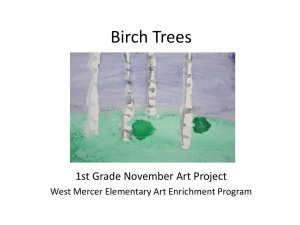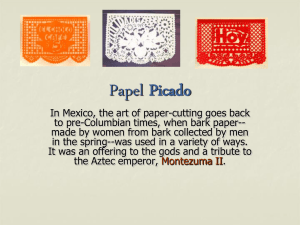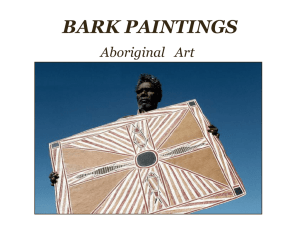Mrs. Van Eck WCS Art Grade 6 Lesson Title: Glass Bottles in Amate
advertisement
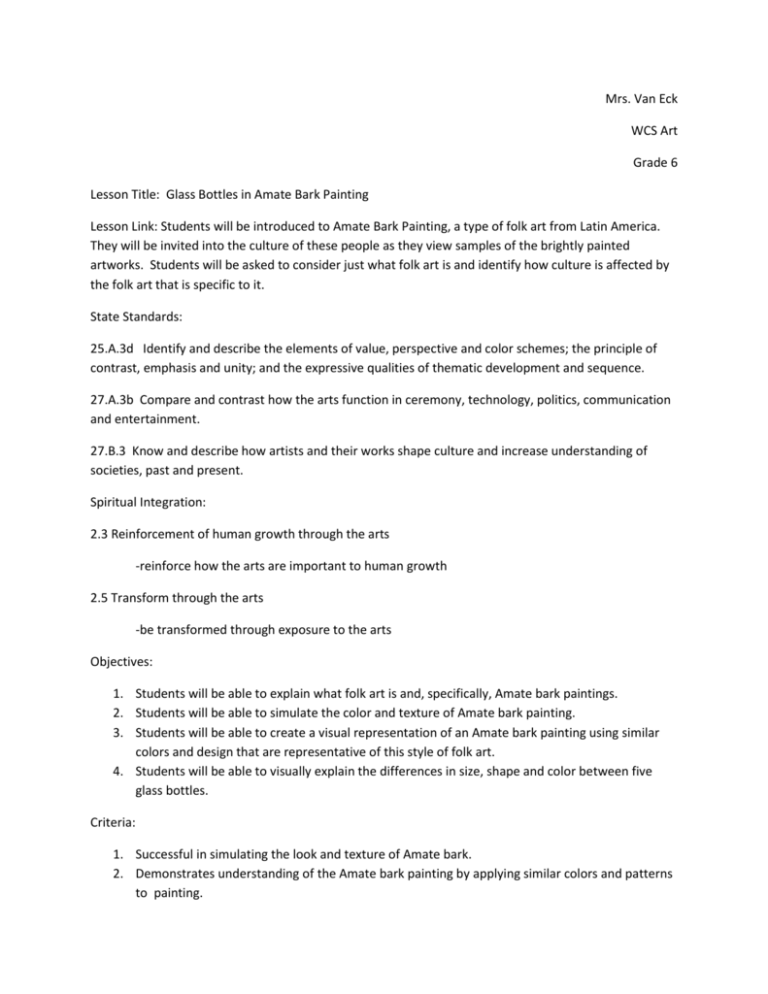
Mrs. Van Eck WCS Art Grade 6 Lesson Title: Glass Bottles in Amate Bark Painting Lesson Link: Students will be introduced to Amate Bark Painting, a type of folk art from Latin America. They will be invited into the culture of these people as they view samples of the brightly painted artworks. Students will be asked to consider just what folk art is and identify how culture is affected by the folk art that is specific to it. State Standards: 25.A.3d Identify and describe the elements of value, perspective and color schemes; the principle of contrast, emphasis and unity; and the expressive qualities of thematic development and sequence. 27.A.3b Compare and contrast how the arts function in ceremony, technology, politics, communication and entertainment. 27.B.3 Know and describe how artists and their works shape culture and increase understanding of societies, past and present. Spiritual Integration: 2.3 Reinforcement of human growth through the arts -reinforce how the arts are important to human growth 2.5 Transform through the arts -be transformed through exposure to the arts Objectives: 1. Students will be able to explain what folk art is and, specifically, Amate bark paintings. 2. Students will be able to simulate the color and texture of Amate bark painting. 3. Students will be able to create a visual representation of an Amate bark painting using similar colors and design that are representative of this style of folk art. 4. Students will be able to visually explain the differences in size, shape and color between five glass bottles. Criteria: 1. Successful in simulating the look and texture of Amate bark. 2. Demonstrates understanding of the Amate bark painting by applying similar colors and patterns to painting. 3. Successfully applies a border to painting in the Amate style. 4. Demonstrates the differences in size, shape, and color of five glass bottles in drawing them. Teacher Resources: Five colored glass bottles Samples of Amate Bark Paintings – Materials: Brown craft paper or paper bags India ink Sponge paint brushes White chalk Bright, fluorescent acrylic paint White and black acrylic paint Paint brushes Black Markers Introduction: Teacher will introduce Amate bark painting and explain the process of using bark from the mulberry or fig trees. The bark is washed, boiled and laid in lines on a wooden board. The fibers are then beaten with stone until they fuse together. Teacher will explain how folk art is the art of the common people and represents their specific cultures. Students will be asked to give examples of folk art from other cultures. Day 1 Teacher will show examples of Amate Bark paintings and ask students to identify characteristics that apply to the painting. Teacher will explain how to make a simulated bark paper by crumpling up a sheet of brown paper. Students will then apply a wash of India ink and water (1/8 ink – 7/8 water) over the entire paper with sponge brushes. Paper should be kept as flat as possible while painting and then allowed to dry thoroughly. Day 2 Teacher will display five different colored glass bottles and ask the students to identify how they compare in size and shape. Teacher will demonstrate how to draw the bottles while students practice drawing them on scratch paper. Students will use white chalk to place a border around the ”amate” paper and then draw the bottles in the center of the picture, applying a horizon line behind them. Days 3 – 5 Students will paint the bottles with bright colors that represent the correct color of each bottle. They will add patterns in the border and throughout the picture using bright colors. Students can outline the bottles with black paint or marker. Day 6 Class critique.
